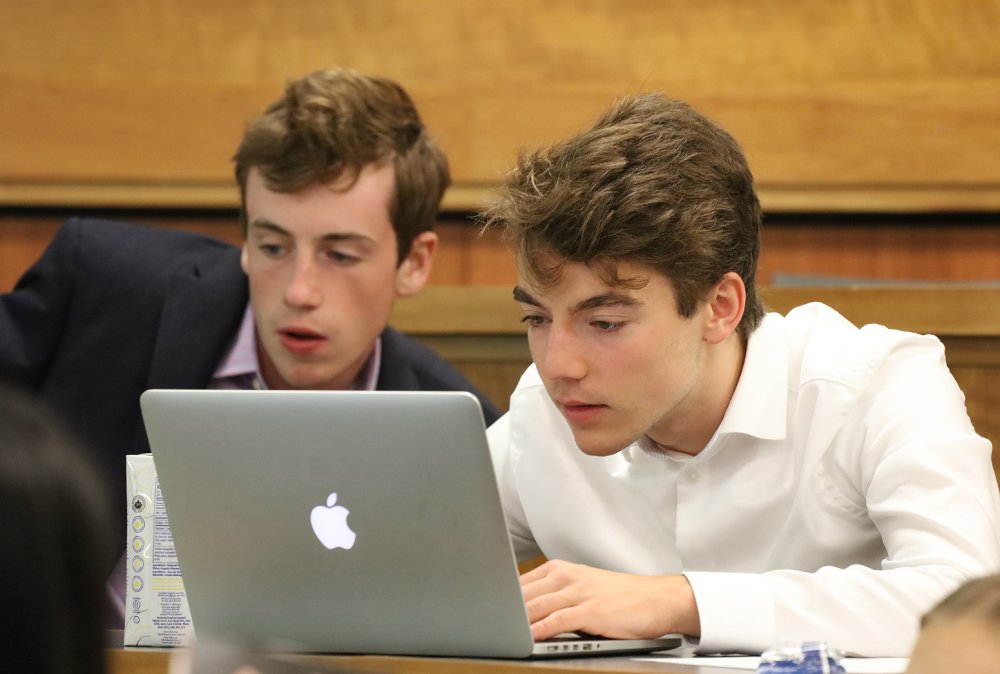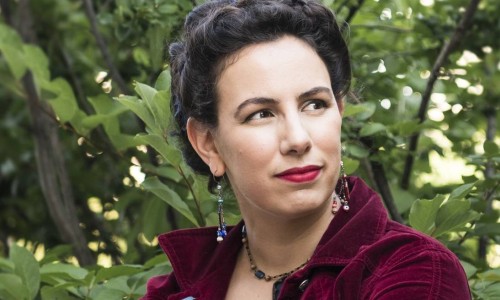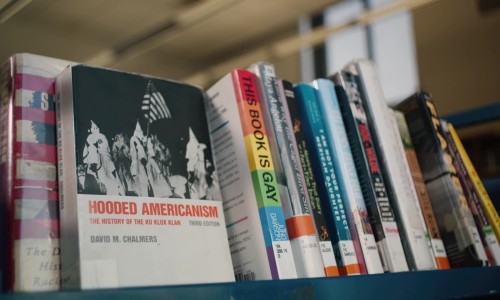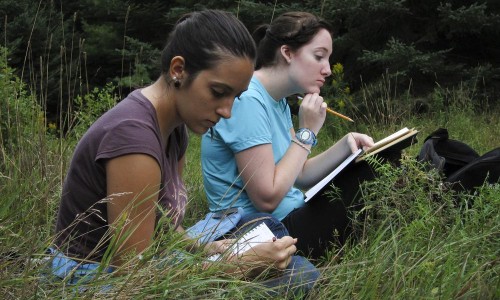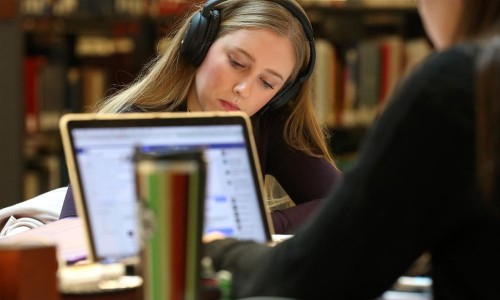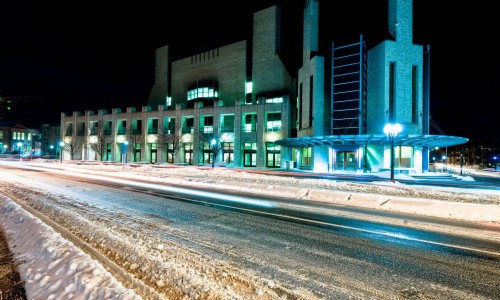Queen’s University Library, The Centre for Teaching and Learning (CTL) and Student Academic Success Services (SASS) recently teamed up in a two-year multi-institutional research study to understand how Generative Artificial Intelligence (GenAI) is shaping the post-secondary sector, including teaching, learning and research.
The library is the institutional sponsor for this project, and the collaboration between units offered opportunities to think about integrated and aligned ways to support faculty, teaching, and research. The Queen’s team consisted of Johanna Amos (SASS), Yasmine Djerbal (CTL), Lindsay Heggie (SASS), Selina Idlas (CTL), Andrew Leger (CTL), Angélique Roy (Library), and Nasser Saleh (Library).
“Resisting siloization, this collaboration enabled three units that support teaching, research and student success—as well as their intersections—to come together to better understand the impacts Generative AI is having within Queen’s, and work together to offer effective and evidence-based practices in teaching, learning, and research.” says Djerbal.
This collaboration enabled an investigation into the resources instructors and researchers are relying on and which resources they feel are still lacking.
Susan Korba, Director, SASS adds, “Our participation in the Ithaka project has come at a critical moment, as students and faculty alike grapple with new technologies and the need to develop digital/AI literacy. By working in partnership with our colleagues from the Library and the CTL, we've been able to ensure that students are well supported as they address these challenges.”
The project, led by Ithaka S + R, a not-for-profit research and consulting service, was conducted in partnership with 19 colleges and universities. The project report details the findings of interviews on how instructors and researchers are using generative artificial intelligence in their work, as well as the challenges they currently face related to GenAI technologies.
The first phase of the project at Queen’s started with the Faculty of Law. In February 2024, a survey was completed by more than 100 students, across undergraduate and graduate law programs, to learn how GenAI is being used by students in academic work as well as general perceptions of these technologies and their impact on the future of Law. The second phase took place in May 2024, when interviews were conducted with faculty members from the faculty of law.
"This project was a great fit for Queen's University’s continuous evolution in the context of transformative technologies,” says Vice Provost and University Librarian, Dr. Mark Asberg. “Unprecedented changes in higher education and the related work of libraries are before us, so we are very grateful for the partnership of CTL and SASS in this work to explore important parts of the emerging AI landscape at Queen's. This work also forms part of larger efforts in which the library is engaged, including Queen's participation in the Ontario Council of University Libraries' AI and Machine Learning Program."
Key Findings
The study surveyed 19 universities from across US and Canada. It shows that instructors and researchers across the universities surveyed have widely varied degrees of familiarity with GenAI, and also see a gap in discipline-specific support resources at their institutions. Concerns have been raised about having secure, affordable access to GenAI tools. The study also demonstrates a high need for more education on the GenAI product landscape for higher education.
“The survey and interviews at Queen’s, and from other institutions participating at this project as well, supported the importance of AI Literacy. This is a role the library is well-suited to support aligned within Librarians’ teaching and learning portfolio in Information Literacy,” says Dr. Nasser Saleh, Librarian for Educational Initiatives.
What comes next
One of the aims of the Ithaka project was for each institution to develop an intervention based on individual institutional projects, and learnings from the cohort. At Queen's, the intervention is a semi-structured generative AI "playtime," which offers faculty a guided opportunity to explore GenAI tools in ways similar to their students. After a successful event in July, the CTL, SASS, and Library will be organizing two more sandbox events during the Teaching Development Conference in August. For more information, please see the Teaching Development Conference website.
Efforts also include students, and in winter 2025, Jessie Hendriks, a doctoral intern from the Faculty of Education, joined SASS with the aim of better understanding GenAI at Queen's in order to inform SASS programming. Jessie is surveying graduate students this summer, asking about their uses and perceptions of GenAI in relation to their academic work, and will run a similar survey with undergraduate students this fall. The findings will help inform programming, resource development at SASS, CTL, and the Library, and be part of an ongoing collaboration stemming from but carrying beyond the Ithaka project.
Additional Resources
- Teaching: CTL provides resources on considerations and guidance around curriculum design in response to the ever-growing popularity of AI tools and Large Language Model (LLM) software.
- Learning: SASS offers a resource/course for students on Using Generative Artificial Intelligence Tools
- Research: For more information on library support for using GenAI effectively, visit the library guide on GenAI or reach out to the librarian for your subject area, or start by using our AskUs service for a referral.
